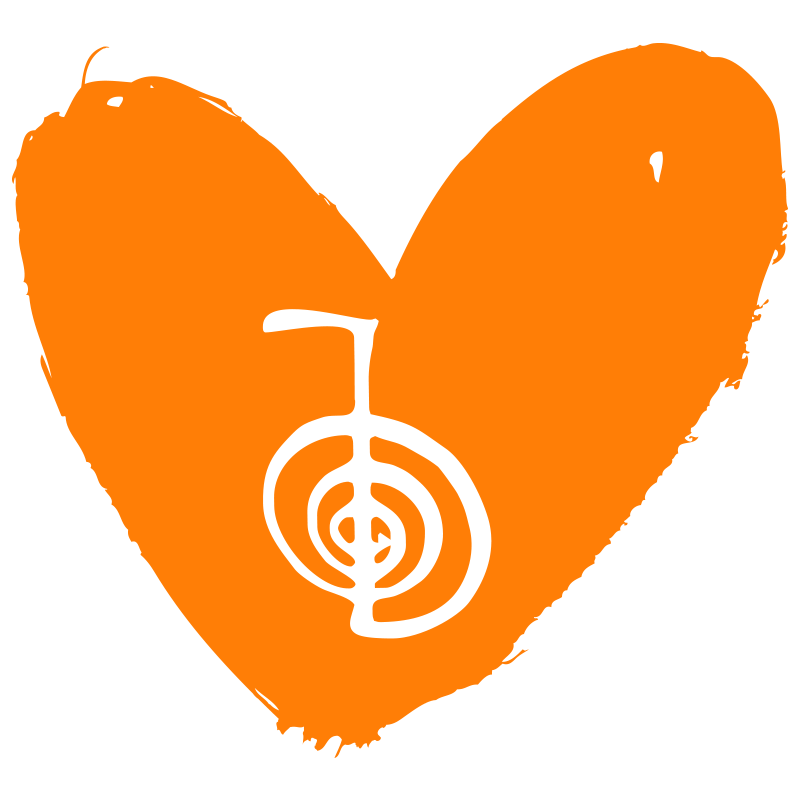When Life Is Turned On Its Head – Mental Health and Brain Trauma
There are some people who come into your life to give you lessons - to remind you to be grateful for everything you’ve got, to be happy with the simple things and never take life for granted. Dean Strachan is one of those people. I met Dean at Headway, a drop-in centre in Tunbridge Wells for people with brain injuries, when I was employed to give relaxation and meditation classes at their studio. Dean was one of the regulars who turned up every time with huge determination and enthusiasm, despite having received a serious brain injury that had turned his world upside down.
Three years ago, Dean (pictured) had been a qualified gas engineer with his own thriving business. He’d just been awarded the selective Worcester Bosch accreditation, was working up to 70 hours a week and was looking forward to expanding his business. He lived in a cottage in the Kent countryside with his partner Katie, bringing up their four children, and life was good.
Then one seemingly normal working day, Dean was installing a boiler in a loft when suddenly the ladder he was using collapsed. He fell, hitting his head on the way down and landed awkwardly on his head. He lost consciousness and a fair amount of blood, but managed to get himself home before a member of the family took him to hospital.
The doctors released him after 24 hours, diagnosing a bruise on the brain, but after suffering infections and pneumonia as his body absorbed the shock, he was back in hospital soon after, also suffering behavioural issues.
Dean explains: “It wasn’t until eight weeks later they realised I had a brain injury. My injury is permanent. I had to go to physio to learn to walk again due to problems with my balance and coordination. The injury is on the frontal lobe which affects emotions and short-term memory, judging what’s right and wrong, anger issues, fatigue. I couldn’t control my temperature. I felt constantly cold even though my actual temperature was high. Noise was a big issue. I used to have a hoodie up over my ears all the time. But I just kept pushing and pushing and forcing myself to deal with noise. High pitched noises I still struggle with – children shouting, tools and machinery noises. And you can’t filter the noise so everything hits you at once. If I go to a coffee shop and the acoustics are wrong I just can’t stay there.”
Not only did Dean have to deal with the physical impact of his injuries, but he also had to deal with the loss of his livelihood: “I had to give up work, I lost my business. That was difficult, going from 70-hour weeks to nothing. I didn’t feel like a man anymore, I’d lost all my self-esteem. I was supposed to be the provider of the house and that disappeared. Family life still carried on but there was nowhere for me to escape to indoors. I couldn’t control the children because I couldn’t control myself. I was depressed and had anxiety and panic attacks. I was literally spending all my time out in the garden. I did that for 6 months, in all weathers. Just trying to escape the noise. Just to isolate myself. Sometimes I just wanted to disappear and just go and walk off.”
Related article: How The Anchoring Technique Can Help Panic Attacks
After some months of struggling to cope, Dean actually took the step to leave the family home and disappear to the Kent coast in his camper van. He left a note for his partner Katie and ended up spending six days – without a watch or a phone - spiralling down into a place where dark thoughts plagued him: “I just needed to escape. I think the element of suicide was there because I left my dog behind. With my frame of mind, I knew I was going somewhere dark and I wasn’t in a position to take care of the dog. I had no contact with people or concept of time. I was literally trying to isolate myself from the world. What stopped me from making that final step I suppose was that I knew I had to work through it. I had hit rock bottom so I had to dig myself out of this hole. There must have still been some fight left in me.”
What Dean had done was just to follow his animal instinct. When animals are injured, they take themselves off to a quiet place and hide away from everyone in order to heal themselves. By hiding away by the sea, Dean was following that ancient instinct in order to heal his emotions and come to terms with his brain injury.
Related article: Cold Showers – Can They Help Anxiety & Depression?
Despite having the support of his partner Katie, his children and his parents, Dean found many friends simply didn’t know how to treat him after the injury: “I’d experienced that before when I lost my daughter. (Dean’s eldest child Brooke died in 2001 from cancer aged just seven). People don’t know what to say. Friends just disappear. I was in a vulnerable state where I felt alone. Brain injuries are a lonely place. I’m like a different person. Even though I look similar, I am different and that was the hardest thing to deal with. People would say ‘Why can’t you go back to your old self?’ But it’s just not that simple.”
Most people spend their lives trying to understand, live with and accept themselves just as they are, but can you imagine having to go through what Dean did? He had to try and understand himself, even though he felt like a completely different person. He had to get to know himself all over again – it’s a bit like he’d just met a stranger for the first time who suddenly took up residence in his own home.
He also had to deal with another setback when the DVLA took away his driving licence for 10 months until they had carried out an assessment. “It knocked me backwards because that was a loss of independence. I had to change my daughter’s school because I couldn’t get to it being far away so she’s had to adjust her life because she was happy at her old school. With public transport it’s difficult because you have to plan your journey and with a brain injury planning is an issue in itself so that was exhausting.”
To cope with the physical and mental trauma, Dean was recommended by his neuropsychologist to visit Headway West Kent, a charity that helps people with brain injuries and supports them to live well: “The first time I went there I wanted to run away. I couldn’t handle it. It was too scary. I thought ‘These people aren’t me’. But they were. I just didn’t want to accept it. But my neuropsychologist said I should give it another try. I still go there to this day. I’ve made some good friends there. We go out once a month for a meal, occasionally we go to the theatre, the odd day trip. I volunteer once a month for a Headway drop-in service at Sevenoaks, where people come for a chat and even members of families of people who are living with people with a brain injury come to get advice and try and understand it.”
Little by little, Dean began to rebuild his life: “I got a dog that helped me get out and about. I use apps to help me. I use a diary, prompts and alarms to remind me to do things or get somewhere. I use a diffuser with aromatherapy oils and I put some Reiki music on and just shut the curtains and I can just float away into a different place. I have to do that most days and if I don’t for a couple of days I regret not having done it. The LightHearts mental health courses and also regular reflexology and massage sessions help me. I went to the gym for a while but overdid it as I usually do! Gentle exercise is better.”
Related article: How A Free Meditation App Changed My Life
He also found the brain injury gave him the opportunity to do things he would never normally have tried such starting a blog and doing photography courses (take a look at some of Dean's photos in the gallery below). He also started taking singing lessons with local singing teacher Charlotte Lubbock: “Before the injury, work overtook my life. The photography, the relaxation, the singing lessons, the blog – this is stuff I would never have done. With the blog it was good to get stuff out of my head that was grinding me down. Things kept going around my head, but writing it down definitely helped. And the people I’ve met! Brain injuries affect people from all walks of life and I’ve met people I wouldn’t necessarily have met before, from actors to pianists through to accountants and some people with quite high-end jobs which I would normally never have associated. I also appreciate money more which is a positive. I struggle with money now – when I had my business I worked hard and always had money in my pocket - but now it definitely makes me appreciate more simple things. My life is definitely totally different to what I had been living.”
He still struggles with headaches and fatigue but has found ways of coping with his health issues by constructing a loose routine which allows him to get his thoughts together for an hour after waking and then limits his physical exertions so he doesn’t wear himself out. But whenever he feels those dark thoughts resurface or his fatigue setting in, he makes sure to trust his instincts by cancelling everything and just resting up for a couple of days before getting back to his routine.
“I have to learn to live alongside my headaches and fatigue rather than let them rule me. The brain will find different paths to deal with things. You just have to retrain your brain to do different things.”
With all the effort and determination Dean puts into turning his life around, I’m sure Dean will continue to act as an inspiration as he continues to learn and pass on valuable lessons about how to cope with what life throws at us.
For help with anxiety, panic attacks and depression, click here to go to the LightHearts UK free online mental health courses.
GET THE FREE MENTAL FIXITS KINDLE EBOOK...
Download the whole LightHearts UK mental health course for free with Kindle Unlimited. Includes personal stories from the LightHearts founders on how to deal with low self-esteem, eating disorders, depression, anxious thoughts and panic attacks.
Click HERE to go to Amazon and find out how you can download your copy now.








